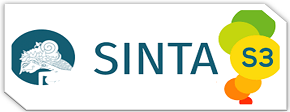Faktor-Faktor yang Mempengaruhi Kinerja Karyawan Pada Universitas Internasional Semen Indonesia (UISI)
DOI:
https://doi.org/10.30587/jurnalmanajerial.v7i01.1101Keywords:
Compensation, environment, culture, leadership, motivation, employeeAbstract
Background/ Purpose - To find out what factors influence employee performance at Semen Indonesia International University (UISI). Design / Methodology / Approach - This research is quantitative research. The sample in this study were UISI employees and lecturers who had structural positions at UISI where only lecturers were not used as respondents. The sampling technique uses simple random sampling and obtained a sample of 79 respondents. The data analysis of this study used multiple linear regression analysis using the assistance of the IBM SPSS Statistics 23 program as if the statistical data. Results and Discussion - The results of this study found that instrument testing, classic assumption tests, t tests, coefficient of determination (R2) and multiple linear regression analysis on the compensation variable hypothesis, work environment, organizational culture, leadership, motivation and job satisfaction showed no significant influence on employee performance so the hypothesis is rejected. While the variable work discipline shows a significant effect on employee performance. Conclusion - Based on the results of the study prove that all hypotheses are acceptable (compensation, work environment, organizational culture, leadership, motivation and job satisfaction have no significant effect on employee performance. While work discipline variables have a significant effect on employee performance). Research Implications - It is expected that the results of this study can add insight related to improving employee performance to pay attention to aspects of work discipline.
References
Cahya. (2018, 02/01/2018). Kurang Apresiasi, 30 Persen Pekerja Indonesia Ingin Pindah Kerja. Jakarta: Kompas.com. Diakses dari Kompas.com: https://lifestyle.kompas.com/read/2018/01/02/214530820/kurang-apresiasi-30-persen-pekerja-indonesia-ingin-pindah-kerja. (Diakses pada 19 Agustus 2018)
Darsono Dan Tjatjuk, Siswandoko, 2011, Manajemen Sumber Daya Manusia Abad 21, Nusantara Consulting, Jakarta
Dewimerdeka. (2015, 04/06/2015). Tiap Dua Hari, Satu Perguruan Tinggi Muncul di Indonesia. Jakarta: Tempo.co. Diakses dari Tempo.co: https://nasional.tempo.co/read/672015/tiap-dua-hari-satu-perguruan-tinggi-muncul-di-indonesia. (Diakses pada 13 Oktokber 2017)
Fred Luthans, (2006), Perilaku Organisasi. Edisi Sepuluh, PT. Andi: Yogyakarta.
Ghozali, Imam. (2016). Aplikasi Analisis Multivariete Dengan Program IBM SPSS 23. Semarang: Badan Penerbit Universitas Diponegoro.
Handoko, T. Hani. 2011. Manajemen Personalia dan Sumberdaya Manusia. Yogyakarta: Penerbit BPFE.
Hasibuan, S.P. Malayu. (2016). Manajemen Sumber Daya Manusia Edisi Revisi. Cetakan Kesembilan belas. Jakarta: PT Bumi Aksara.
Khaerul. Umam. 2010. Perilaku Organisasi. Bandung: Pustaka Setia
Mangkunegara, Prabu, Anwar, 2011, Manajemen Sumber Daya Perusahaan, Cetakan Kesepuluh, PT. Remaja Rosdakarya, Bandung
Pratomo. (2017, 04/05/2017). Perguruan Tinggi Swasta: Pertumbuhan Unit dan Mahasiswa Tak Sejalan. Jakarta: Jakarta Raya. Diakses dari Jakarta Raya: http://jakarta.bisnis.com/read/20170504/448/650484/perguruan-tinggi-swasta-pertumbuhan-unit-dan-mahasiswa-tak-sejalan. (Diakses pada 3 Desember 2017)
Robbins, Stephen P. dan Coulter, Mary. 2010. Manajemen Edisi Kesepuluh. Jakarta: penerbit Erlangga
Singarimbun, Masri dan Sofian Effendi, Metode Penelitian Survei, Jakarta: LP3ES, 2008.
Siswandi. 2012. Pengaruh Gaya Kepemimpinan Dan Budaya Organisasi. Semarang
Sondang P. Siagian, 2007. Manajemen Sumber Daya Manusia, Cetakan ketiga, Penerbit Bumi Aksara – Jakarta
Sugiyono. (2016). Metode Penelitian (Kuantitatif, Kualitatif dan R&D). Cetakan Ke-23. Bandung: Alfabeta.
Wibowo. (2016). Manajemen Kinerja. Jakarta: PT. Rajagrafindo Persada.






























 P-ISSN: 2354-8592 __ E-ISSN: 2621-5055
P-ISSN: 2354-8592 __ E-ISSN: 2621-5055 
